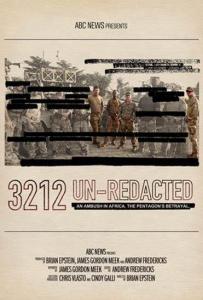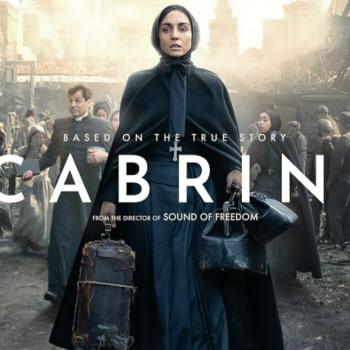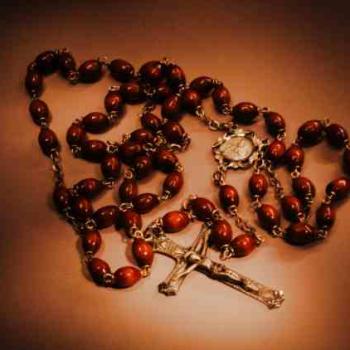3212 Un-Redacted premiers on November 11, 2021, HULU
As I write this review of the extraordinary documentary premiering on Hulu November 11, 2021, I am mindful that this is the birthday of the Servant of God, peace activist, and social justice advocate for the poor, Dorothy Day. She knew that American children who practiced hiding under their school desks in case of a nuclear bombing during “duck and cover” Civil Defense drills in the 1950s and 60s would not protect them from anything; that this was propaganda, a lie told to comfort people as the Cold War intensified. She and others protested and were arrested more than once.
Similarly, I think she would be outraged – and would have protested – at the revelations of cover-ups and lies told by the U.S. Army and the AFRICOM desk at Pentagon in the aftermath of the deaths of four Special Forces service members in Niger, Africa in 2017. I think Day would also demand to know where and why the U.S. military is deployed around the world and acting in our name. She, like the parents and families of the four men killed, would demand the truth and accountability in the name of justice.
This is what 3212 Un-Redacted is all about.
https://www.youtube.com/watch?v=oWRYNNdrmPw
According to this ABC News Investigation documentary, on October 3, 2017, a convoy of military vehicles with a U.S. Special Forces ODA (Operational Detachment Alpha) highly qualified team along with Nigerien soldiers, left on what an approved one-day plan to gather intelligence about Islam extremists in Tiloa. On their way back to their base in Ouallam, Niger, they were directed to change plans and travel north to “pinpoint, capture and kill” a highly valued Islam extremist terrorist named Doundou Chefou.
Captain Michael Perozeni who headed the ODA team protested this change of plans twice because they did not have needed intelligence, were not equipped for the mission and they did they have any backup. His commanding officer, in this case, Lt. Commander Donald Painter based in Chad, denied both requests to return to Ouallam. The soldiers, therefore, traveled north overnight and at sunrise on October 4th found the camp deserted. At 8:30am they began the return journey to Ouallam but the Nigerien soldiers wanted to stop at Tongo Tongo for water and food. The ODA team met with village leaders to gather intelligence about the area, but the leaders delayed their departure. Soon after they got on the road again, they came under deadly fire.
Although Perozeni texted and called for cover and rescue, Painter denied the assistance, according to the film. The ambush left four Special Forces members dead: Staff Sargent (SS) Bryan Black, SS Jeremiah Johnson, Sgt. LaDavid Johnson, and SS Dustin Wright. Four Nigerien soldiers also perished.
What happened next, the film asserts, was a cover-up to protect the careers of those higher up on the chain of command. The Army’s redacted report on the ambush, that family members read from throughout the film, has been removed from the Pentagon’s website. The families were told one thing and then another, some of which made no sense. The film also alleges that one unidentified vehicle in the military convoy was manned by a CIA team looking for an American Christian aid worker being held hostage, Jeffrey Woodke, and it was their search for Woodke is what drove the “mission”.
The worst is that the subsequent investigation of the tragedy, carried out by AFRICOM rather than another entity, concluded that the ODA team itself was to blame. As one father says, “The army let my son down and then they lied about it and forced the blame down the [command] ladder.” In fact, one member who was on paternity leave in the U.S. at the time and had nothing to do with the specific mission or its execution, Company Commander Alan Van Saun, was formally reprimanded for not training his team adequately and was told he had no future in the army. Captain Perozeni was reprimanded but successfully appealed it.
Having blamed the ODA team for the disaster, in a totally contradictory move, the Army then awarded medals to the fallen soldiers.
There is so much more to this story besides the Army’s ever-spinning narrative: the details of what is known to have happened and what has been recently revealed, the unanswered questions (like what our military is doing in Africa to begin with) and the Army’s ability to circle the wagons and protect those who really bear the blame. If you ever doubt that it’s those in command who make the mistakes but shed the blame and thus are not held accountable, see Peter Weir’s Gallipoli (1981), and Stanley Kubrick’s Paths of Glory (1957) for starters. It’s not like we don’t know the drill.
Also, the mother of one of the soldiers who died does not begrudge a mission to rescue Mr. Woodke. Her problem is that this excuse was offered up by the army out of nowhere, another spin to excuse what happened and avoid blame. (Mr. Woodke is still being held, location unknown.)
The film made me think of the story of former NFL player Pat Tillman who was killed in Afghanistan in 2004. The army also covered up what happened, as author Jon Krakauer explained on NPR in 2009.
The most moving part of this documentary is by far the stories of the soldiers who were killed, their bravery, dedication, and their brave families who love and remember them still. This is an excellent, riveting, and heartbreaking film that educates and affirms the necessity of truth and accountability from government so that we can trust those who act in our name. This documentary excels as an investigative report.
(You can fact check the film by googling names and events; multiple sources are cited for most.)













